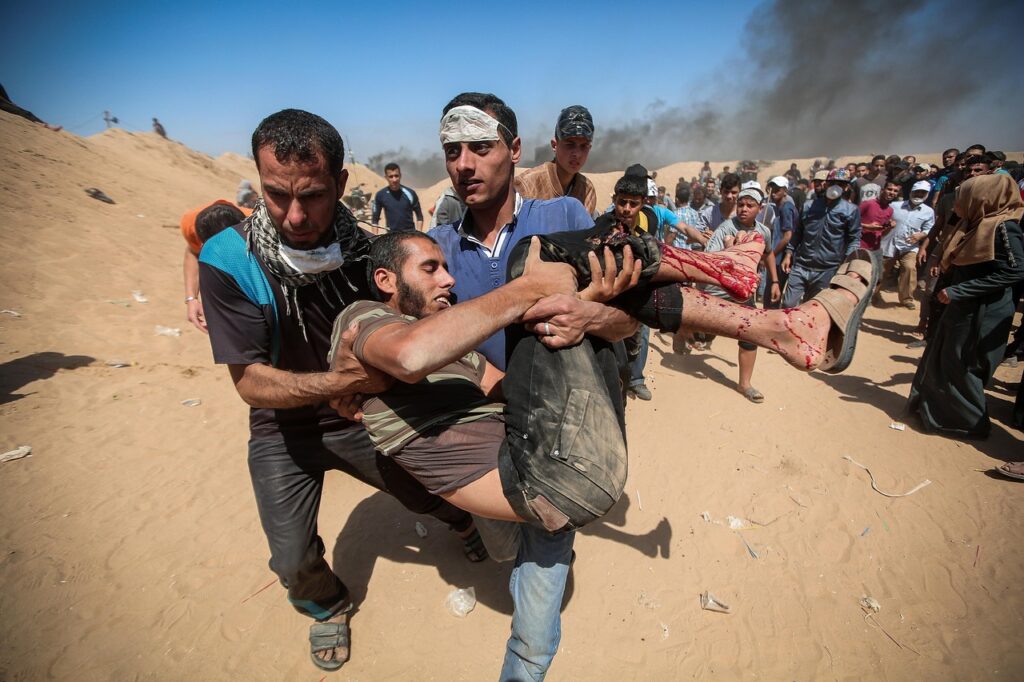Introduction
Israel has launched a direct attack on Iran under Operation Rising Dawn, shaking global geopolitics. Iran, which has consistently targeted Israel through proxies like Hamas, Hezbollah, and the Houthis, is now openly engaged in this conflict. In this article, we explore the reasons behind this war, its global implications, and the critical role of the Strait of Hormuz, a key factor in this escalating crisis. We’ll also analyze how Pakistan stands to benefit and what this means for India.
Chapter 1: Israel vs. Iran – The War Begins
Israeli Prime Minister Netanyahu has labeled Iran the “head of the octopus,” with its proxies—Hamas, Hezbollah, and the Houthis—as its “tentacles.” On June 13, Israel targeted Iranian nuclear infrastructure, civilian and military targets, marking its first direct attack on Iran in over 30 years.
What Happened and Why?
- Israel’s Strategy: Israel’s Mossad received intelligence that Iran’s secret nuclear program was nearing completion, posing a potential nuclear threat.
- Iran’s Retaliation: Iran launched Operation Savior Punishment, firing missiles at Tel Aviv and Jerusalem. Israel’s Iron Dome failed to intercept all missiles.
- War’s Severity: Both nations are attacking each other’s capitals, and hundreds have already died. Netanyahu warned of a “long war,” signaling no de-escalation.
Chapter 2: Strait of Hormuz – The War’s Flashpoint
Iran holds a weapon that could impact not just Israel but Asia and the world: the Strait of Hormuz. This is the world’s most critical maritime route, through which:
- Over 3,000 commercial ships transport oil and natural gas from Gulf countries to global markets every month.
- Approximately 20% of global oil consumption (18-20 million barrels per day) passes through this strait.
Iran’s Strategy
- Iran has started jamming GPS signals of ships near the Strait of Hormuz, disrupting navigation.
- Iran has threatened to block the strait entirely, which would cripple global energy markets, spike oil prices, and devastate economies reliant on Gulf oil.
Global Impact
- China: As the world’s largest oil importer, a blockade would cripple China’s economy.
- India: A $10 per barrel price hike could increase India’s import bill by $5 billion, hampering economic growth.
- Russia: Russia could benefit by boosting its oil exports, potentially forcing the West to lift sanctions.
Chapter 3: The Roles of the U.S. and China
United States
- The U.S. claims it wasn’t involved in Israel’s attack but admits it was informed beforehand, indicating tacit approval.
- The U.S. has deployed two aircraft carriers (USS Harry S. Truman and USS Carl Vinson) to the Gulf and positioned naval destroyers in the Mediterranean for missile defense.
- President Trump, returning from the G7 summit, warned Tehran to evacuate, hinting at potential direct U.S. involvement.
China
- China condemned the attack on Iran as “unacceptable” and a violation of international law, aiming to boost its global influence.
- As Iran’s largest trading partner, China relies on Iran for energy security. In 2021, China pledged $400 billion in investments in Iran.
- China seeks to mediate to prevent war, as a conflict would disrupt its oil supply and economy.
Emerging Alliance
A new bloc—Axis of Upheaval—comprising Russia, China, North Korea, and Iran is forming to counter Western powers. However, this alliance is not yet ready for all-out war.
Chapter 4: Pakistan’s Advantage
Pakistan could emerge as a major beneficiary of this conflict. How?
Pakistan’s Strategic Position
- Geographic Leverage: Pakistan’s location makes it a key player in the Middle East and South Asia. The U.S. could use Pakistan as a base to monitor or attack Iran.
- Nuclear Capability: Pakistan is the only Muslim nation with nuclear weapons. If Iran’s nuclear program fails, it could acquire nukes from Pakistan. Pakistan’s Shaheen-3 missiles can reach Israel.
- Double Game: Pakistan secures Western aid (e.g., IMF loans) while rallying Muslim nations against Israel. Its defense minister called for an emergency Organization of Islamic Cooperation (OIC) meeting to unite Muslim countries.
Challenges for India
- Relations with Iran and Israel: India maintains good ties with both nations, purchasing drones from Israel and investing in Iran’s Chabahar port.
- Pakistan’s Edge: While India has moral standing (virtue), Pakistan has leverage due to its location and nuclear arsenal.
- Non-Alignment Dilemma: India cannot remain non-aligned indefinitely. If Pakistan picks a side, India must act strategically.
Chapter 5: Is This the Start of World War III?
The conditions for a third world war are in place:
- Alliances: Axis of Upheaval vs. Western powers.
- Nuclear Threat: Both sides possess nuclear capabilities.
- Global Stakes: A Strait of Hormuz blockade could collapse the global economy.
- Great Power Involvement: The U.S. and China could be drawn into direct conflict.
If the U.S. engages, China may be forced to respond. Control over the Strait of Hormuz could determine the war’s outcome.
Conclusion
The Israel-Iran war is not just a bilateral conflict—it threatens global economies, energy security, and geopolitical stability. Pakistan could gain strategic leverage, while India must navigate this crisis carefully.
Question: Should India support Iran or Israel? Share your thoughts in the comments.

